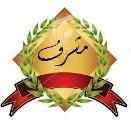Body, Spirit, Mind, Heart, and Conscience
The multi-dimensional nature that Man has been blessed with highlights the essence of his creation, his role, and his destiny. Rather than stressing on the body or the soul in isolation, Islam endorses a view in which the body, the spirit, the mind, the heart, and the conscience of Man are all highlighted. Islam does not endorse a worldview in which the physical body is seen as something “profane” and vulgar and necessarily completely independent from the purity of the spirit. Just as the spirit can be purified, the purification of the body is also an important part of everyday life.
Islam also respects both the mind and the conscience of Man. Many verses in the Qur’an stress the importance of using the mind when it says what means
Certainly We have revealed to you a Book in which is your good remembrance; what! do you not then understand? (Al-Anbiyaa’ 21:10)
Also it says what means
It is He Who gives life and death, and to Him [is due] the alternation of Night and Day: will ye not then understand? (Al-Mu’minun 23:80)
And again
Will they not then ponder on the Qur’an? If it had been from other than God they would have found therein much incongruity. (An-Nisaa’ 4:82)
Pondering, understanding, thinking, are all encouraged. It is Man’s conscience that leads him to repent sincerely when he has sinned, thereby paving the way for God’s guaranteed forgiveness.
All of these aspects are not taken separately, but are seen as working in a mutually interdependent harmony, each supporting the other towards the goal of achieving inner peace and ******* in this life and the next.
Therefore, Man is not seen as a single-faceted entity, but rather as a multi-dimensional, honored being with a purpose in life and a goal to achieve. He is considered holistically, rather than partially. He is endowed with the abilities and traits that can help him both achieve his mission here on earth and elevate himself through a close relationship with his Creator and attain Paradise.
The multi-dimensional nature that Man has been blessed with highlights the essence of his creation, his role, and his destiny. Rather than stressing on the body or the soul in isolation, Islam endorses a view in which the body, the spirit, the mind, the heart, and the conscience of Man are all highlighted. Islam does not endorse a worldview in which the physical body is seen as something “profane” and vulgar and necessarily completely independent from the purity of the spirit. Just as the spirit can be purified, the purification of the body is also an important part of everyday life.
Islam also respects both the mind and the conscience of Man. Many verses in the Qur’an stress the importance of using the mind when it says what means
Certainly We have revealed to you a Book in which is your good remembrance; what! do you not then understand? (Al-Anbiyaa’ 21:10)
Also it says what means
It is He Who gives life and death, and to Him [is due] the alternation of Night and Day: will ye not then understand? (Al-Mu’minun 23:80)
And again
Will they not then ponder on the Qur’an? If it had been from other than God they would have found therein much incongruity. (An-Nisaa’ 4:82)
Pondering, understanding, thinking, are all encouraged. It is Man’s conscience that leads him to repent sincerely when he has sinned, thereby paving the way for God’s guaranteed forgiveness.
All of these aspects are not taken separately, but are seen as working in a mutually interdependent harmony, each supporting the other towards the goal of achieving inner peace and ******* in this life and the next.
Therefore, Man is not seen as a single-faceted entity, but rather as a multi-dimensional, honored being with a purpose in life and a goal to achieve. He is considered holistically, rather than partially. He is endowed with the abilities and traits that can help him both achieve his mission here on earth and elevate himself through a close relationship with his Creator and attain Paradise.










